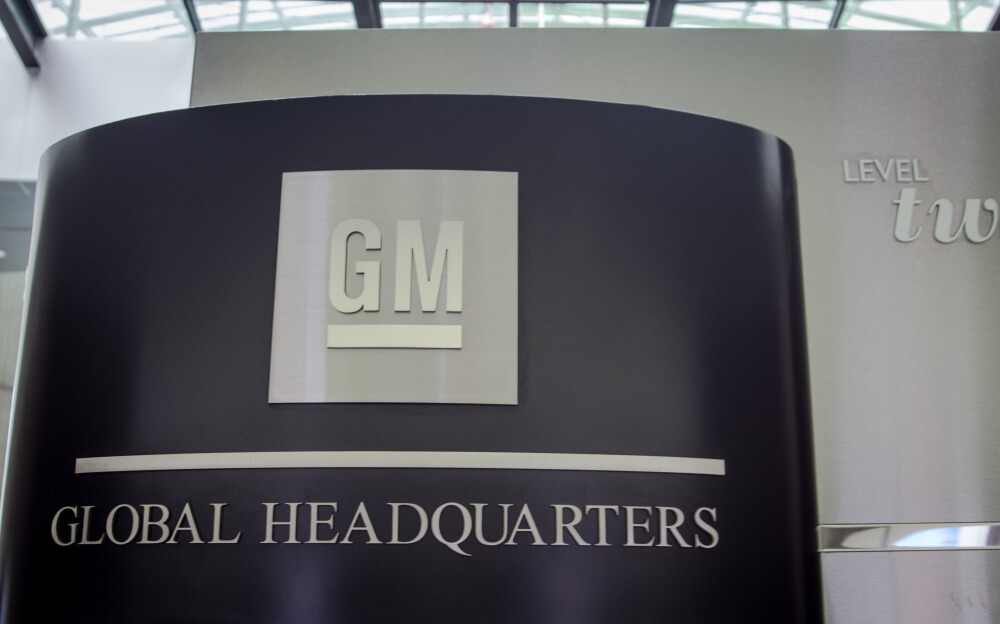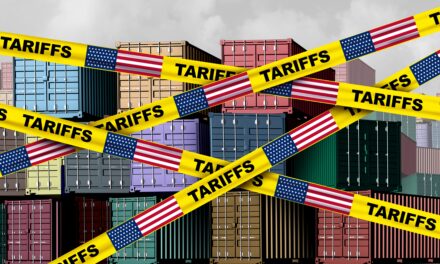General Motors announced this week it laying off about 14,000 salaried workers and closing up to five plants in North America.
The company said it is shifting its focus away from vehicles that aren’t selling well anymore to electric and autonomous vehicles.
“Trump was not responsible for GM’s layoffs. Nor is there anything he or any other politician can do to change the need for GM to cut these jobs.”
The left of course is quick to blame President Donald Trump’s steel and aluminum tariffs, and a re-worked NAFTA deal for the layoffs.
Trump blames GM, and he’s threatened to pull the company’s subsidies if it doesn’t open a new plant.
“Very disappointed with General Motors and their CEO, Mary Barra, for closing plants in Ohio, Michigan and Maryland. Nothing being closed in Mexico & China. The U.S. saved General Motors and this is the THANKS we get! We are now looking at cutting all @GM subsidies, including …
… for electric cars. General Motors made a big China bet years ago when they built plants there (and Mexico) – don’t think that bet is going to pay off. I am here to protect America’s Workers!” he said in a two-tweet thread.
The Detroit Free Press, near one of the plants that will shut down, did a recent interview with University of Michigan economist Don Grimes, a regional forecast specialist with the Research Seminar in Quantitative Economics. And Grimes said the layoffs have more to do with the economy than Trump’s politics.
Don Grimes: The layoffs are structural, in the sense that they are permanent, and those jobs are not going to return because of an upturn in the business cycle (those would be cyclical layoffs). I don’t believe any public policy decision or pronouncement has driven these layoffs. It is the economy, not the politics that is the driving force. I also don’t think it has anything to do with the revised NAFTA treaty or the steel/aluminum tariffs.
FP: So just to make this abundantly clear — it wasn’t President Donald Trump?
DG: Trump was not responsible for GM’s layoffs.
Nor is there anything he or any other politician can do to change the need for GM to cut these jobs. It is possible that local or national officials could entice the company to relocate some activity to these plants with incentives, but that would just change the location of who is going to lose their job, not the fact that GM is going to employ fewer factory workers.
FP: What marketplace changes is GM reacting to? Is there anything the company can do to stave off these layoffs and future workforce cuts?
DG: I think the two big things that have driven GM’s decision are the shift in consumer choice from cars to light trucks and SUVs, and the technological change from driver to driverless vehicles and from gasoline to electric vehicles. The shift from cars to trucksis what is killing off those particular manufacturing plants.
I wish I knew more about the composition of the white-collar layoffs. Are those layoffs due to the shift toward driverless and electric vehicles? Do they signal that GM is losing that race? Or are they just people who worked on the design and production management of cars, so that as GM gets out of car production it doesn’t need those people? I am most concerned about what the white-collar layoffs signify.
FP: Trump is tweeting sternly at GM, promising retribution unless the company reverses its decision, or opens new plants. Practically speaking, what could Trump or the U.S. Congress do to discourage these layoffs?
DG: I don’t think there is anything any political leader can do to change the white-collar job losses, and I fear that most of those are going to be in Michigan.
I don’t think GM will change their plans very much. I don’t see how anyone can get people to buy more small cars instead of big SUVs. Maybe with a very large national gas tax, but otherwise GM and Ford Motor Co. look like they are mostly getting out of the car business, and car plants are therefore going to close.
The one thing that the government can do is to make sure that U.S. research centers, including universities, have as much money as necessary to develop electric vehicles (and battery charging technology) and autonomous vehicle technology. We don’t want to lose that technology race to China.
FP: In the ’80s, the U.S. effectively ceded the small car market to Asian automakers, giving them a real foothold in the industry. Seeing American automakers largely abandoning sedans — are we doing this again?
DG: I was actually thinking about that, too. The Europeans, the Japanese and the Koreans are not moving out of cars, and therefore they are going to expand their market share in this segment as the U.S. companies bail out of cars (small, medium, and it looks like GM is getting out of luxury cars, too). I was surprised when Ford said they were getting out of cars, and even more surprised now that GM is eliminating a lot of car programs as well.
I understood why the Detroit Three got out of small cars in the 1980s; they couldn’t make any money producing them. And I understand that they are either losing money or making relatively little in cars today. But I am not sure it is smart to abandon the entire space. After all, most of the autonomous vehicle technology and electric vehicle technology is being introduced in cars, not SUVs.
But those guys get paid a lot more than you or me, so presumably they have some reason for abandoning cars.
FP: How could developments outside GM’s control — an oil embargo, or the rise of foreign leaders hostile to the U.S. auto industry — play havoc with GM’s plans?
DG: The national and state economy are going to slow, and GM’s actions will contribute to that slow-down (and the upcoming Ford cuts, too). We don’t think those actions alone will result in a recession nationally or in Michigan, but they will increase the risk that something else could cause a recession.




